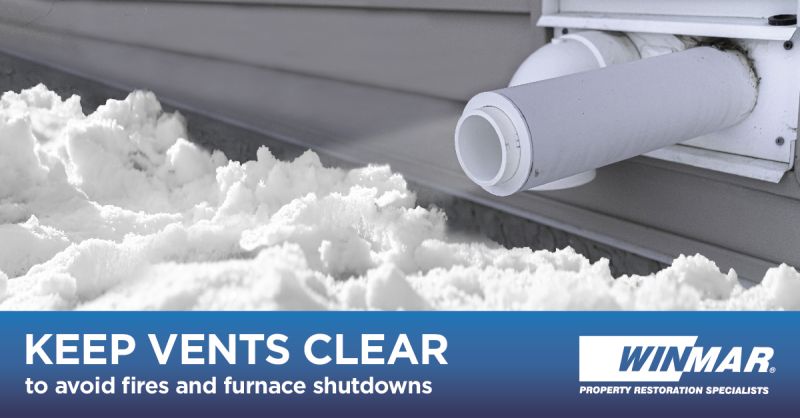Blocked Ventilation Can Cause Water Damage
Blocked Ventilation Can Cause Water Damage
A Homeowner’s Guide to Avoiding Water Damage
Introduction
Creating a healthy and comfortable home environment goes hand in hand with efficient ventilation. The role of HVAC (Heating, Ventilation, and Air Conditioning) systems is pivotal in maintaining optimal indoor air quality, temperature balance, and humidity levels. However, a common adversary to this comfort is blocked HVAC pipes, a problem that can lead to significant water damage if not addressed. This guide aims to arm homeowners with effective strategies to prevent such blockages, thereby protecting their homes from potential water damage.
Regular Inspection
Why Inspect Regularly?
Ensuring the smooth operation of your HVAC system starts with routine inspections. Regular checks help identify and rectify any early signs of blockage.
How to Inspect
- Visual Examination: Begin with a thorough visual inspection of the vents. Look for signs of dust, debris, or any obstructions in and around the vents.
- Blockage Removal: If blockages are detected, remove them gently using appropriate tools. For exterior vents, be vigilant for leaves, dirt, or small animals.
- Special Attention to Exterior Vents: Outdoor vents are more prone to blockages due to environmental factors.
Proper Cleaning
The Importance of Cleaning Vents
Regular cleaning of your vents enhances airflow and prevents blockages, ensuring the efficient functioning of your HVAC system.
Cleaning Steps
- Vacuuming: Use a vacuum cleaner with a hose attachment to remove dust and debris. Be cautious to use a low setting to prevent damage to the ductwork.
- Brush Cleaning: Employ a long, flexible brush specifically designed for duct cleaning to reach deeper sections of the vents.
- Professional Assistance: For challenging blockages, consider enlisting a professional HVAC cleaning service.
Seasonal Maintenance
Maintaining Through the Seasons
Adapting your maintenance routine according to the season is crucial in preventing HVAC blockages and subsequent water damage.
- Winter: Ensure furnace vents are free from snow to avoid airflow blockage and potential hazards like appliance failure or carbon monoxide accumulation.
- Fall: Inspect and clear your outdoor HVAC unit of leaves, debris, or overgrowth. Keep surrounding vegetation trimmed.
Importance of Proper Ventilation
Why Ventilation Matters
Clear vents are not just a convenience; they are integral to the health and safety of your home.
- Air Quality: Clear vents improve airflow, reducing indoor pollution and allergens.
- Moisture Control: Efficient ventilation prevents excess moisture, deterring mold growth and structural damage.
- Energy Efficiency: A well-maintained HVAC system is more energy-efficient, reducing utility costs.
Conclusion
The threat of water damage stemming from blocked HVAC pipes is real but preventable. Regular inspection, proper cleaning, and seasonal maintenance of your HVAC system are critical in avoiding such issues. By adhering to these preventative measures, homeowners can ensure efficient operation of their HVAC systems, enhanced air quality, and a reduced risk of water damage. Embrace these practices for a safer, more comfortable living environment.
FAQ Section
Helpful Tips for HVAC Maintenance
- Q: How often should I inspect my HVAC system?
- A: It’s recommended to inspect your system at least twice a year, ideally during the spring and fall.
- Q: Can I clean the HVAC vents myself?
- A: Yes, basic cleaning can be done using a vacuum cleaner and a duct cleaning brush. However, for deep cleaning, consider hiring professionals.
- Q: What are the signs of a blocked HVAC vent?
- A: Common signs include reduced airflow, strange noises, and increased energy bills.
- Q: Is it necessary to trim plants around the outdoor HVAC unit?
- A: Yes, keeping the area around your outdoor unit clear of overgrowth prevents blockages and ensures efficient operation.
Remember, regular maintenance not only prevents blockages but also prolongs the life of your HVAC system.

